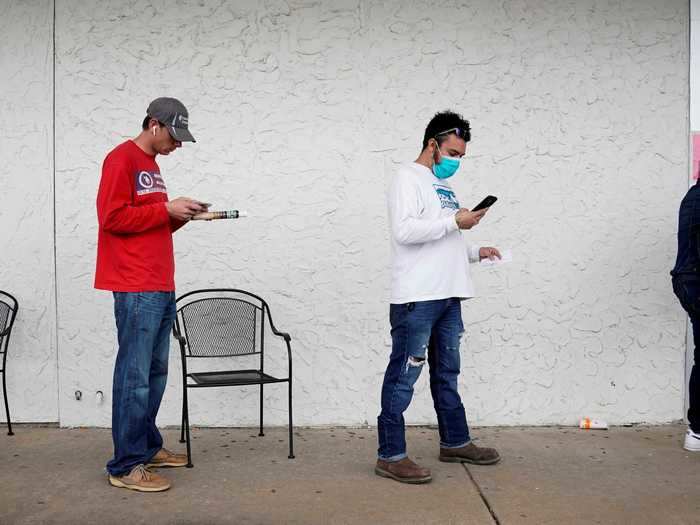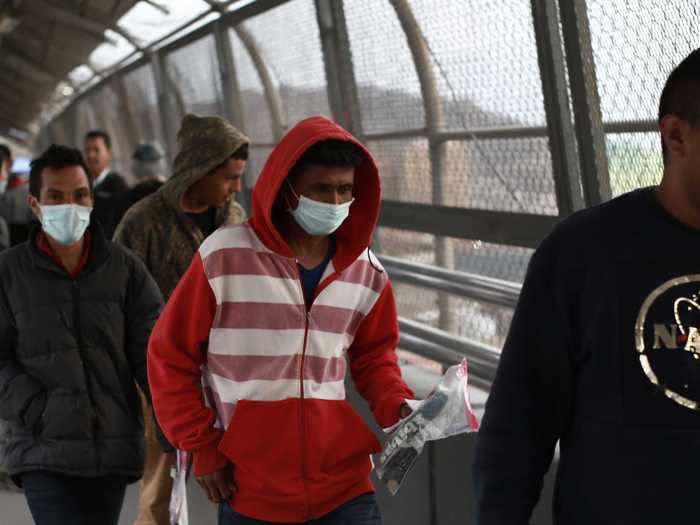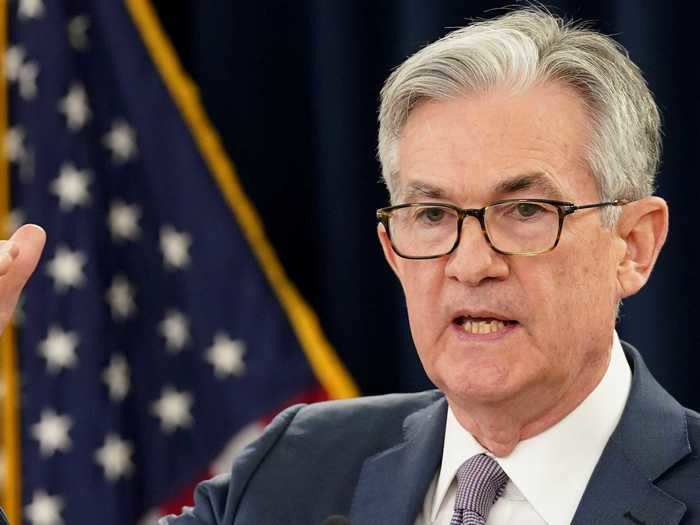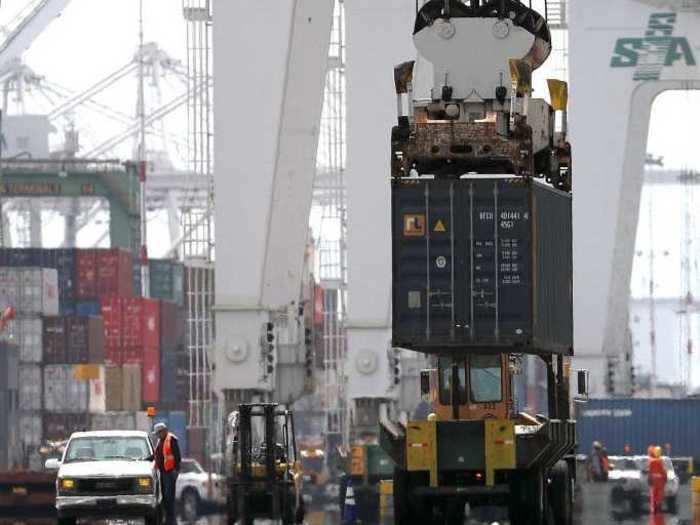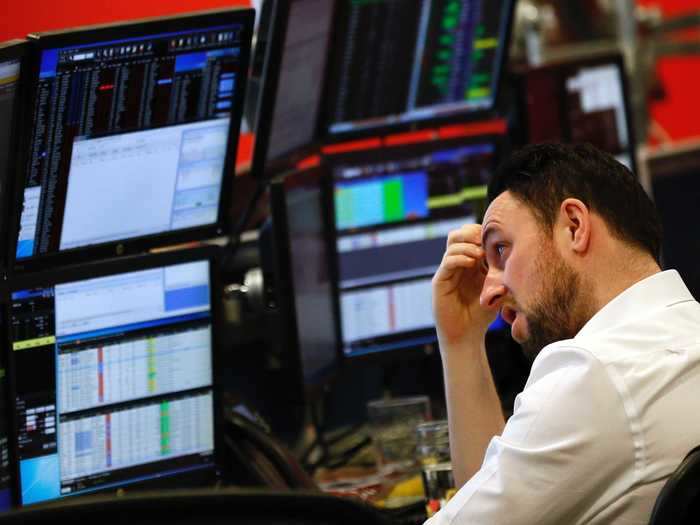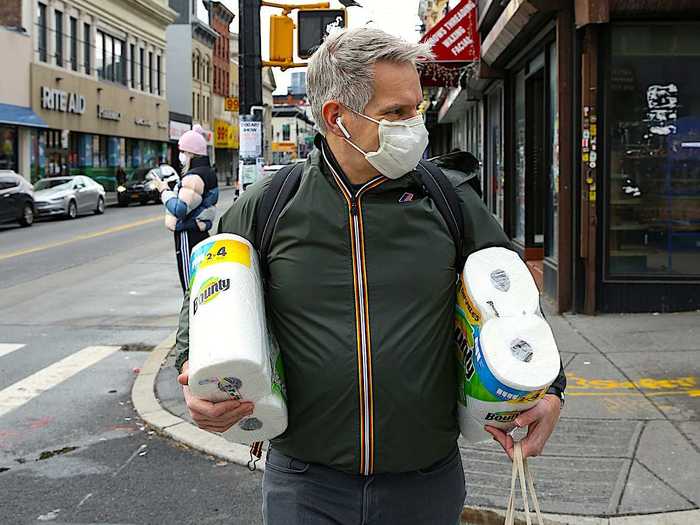Tayfun Coskun/Anadolu Agency/Getty Images
- A survey released Tuesday from the World Economic Forum showed economic distress and social discontent will rise over the next year and a half unless global leaders work together to manage fallout.
- The report surveyed nearly 350 risk professionals about the coronavirus pandemic.
- Here are the top 10 global fallout scenarios that risk professionals named as their biggest worries following the coronavirus crisis.
Without global leaders working together to manage fallout from the coronavirus pandemic, economic distress and social discontent will rise over the next year and a half, according to a survey from the World Economic Forum.
The survey of nearly 350 risk professionals released Tuesday by the Geneva-based forum found that most were concerned about the economic impact following the outbreak. Two-thirds of respondents said a prolonged global recession is their top concern for business, while more than half said bankruptcies and industry consolidation was highest on the list.
"The crisis has devastated lives and livelihoods. It has triggered an economic crisis with far-reaching implications and revealed the inadequacies of the past," said Saadia Zahidi, managing director of the World Economic Forum. "Leaders must work with each other and with all sectors of society to tackle emerging known risks and build resilience against the unknown."
Read more: Small companies are the biggest post-coronavirus battleground on Wall Street. 4 of the world's best fund managers share their strategies for the space — and the single stocks they love.
Around the world, 500 million people are at risk of falling into poverty from the outbreak, and 80% of students worldwide were out of school in March, according to the report. In addition, world output is expected to slump 3%, and foreign direct investment is slated to fall between 30% and 40%.
The implications of high unemployment and continued lockdowns could have a devastating effect on health — for every 1% increase in unemployment, there is a 2% increase in chronic illness, the report showed. And, 34% of adults are feeling adverse effects on their mental health during lockdown, according to the data.
Here are the 10 most likely global fallout scenarios that risk professionals see stemming from the pandemic in the next year and a half, ranked from most to least.
Read the original article on
Business Insider
10. Prolonged recession of the global economy
Fabian Strauch/picture alliance/Getty Images
Percent top risk - 68.6%
"Respondents reckon that economic risks in general – a prolonged recession of the global economy in particular – are the most likely and concerning fallout for the world and companies over the next 18 months," WEF wrote in the report.
"COVID-19 diminished economic activity, required trillions of dollars in response packages and is likely to cause structural shifts in the global economy going forward, as countries plan for recovery and revival."
Source: World Economic Forum
9. Surge in bankruptcies (big firms and SMEs) and a wave of industry consolidation
FILE - In this May 8, 2020, file photo, a J.C. Penney store sits closed in Roseville, Mich. The coronavirus pandemic has pushed troubled department store chain J.C. Penney into Chapter 11 bankruptcy. It is the fourth major retailer to meet that fate. Penney said late Friday, May 15, 2020, it will be closing some stores and will be disclosing details and timing in the next few weeks. (AP Photo/Paul Sancya, File)
Associated Press
Percent top risk - 56.8%
"A build-up of debt is likely to burden government budgets and corporate balances for many years, global economic relations could be reshaped, emerging economies are at risk of submerging into a deeper crisis, while businesses could face increasingly adverse consumption, production and competition patterns," said WEF in the report.
Source: World Economic Forum
8. Failure of industries or sectors in certain countries to properly recover
DALLAS, TX - OCTOBER 4, 2017: An American Airlines flight attendant closes the lid on an overhead luggage compartment in a passenger jet preparing to depart from Dallas/Fort Worth International Airport in Texas. (Photo by Robert Alexander/Getty Images)
Robert Alexander/Getty Images
Percent top risk - 55.9%
Airlines are one industry that's been slammed by the pandemic, as all nonessential travel was banned to curb the spread of the disease. Experts and analysts think it will take five years for the industry to recover and that some airlines will not survive.
Source: World Economic Forum
7. High levels of structural unemployment (especially youth)
FILE PHOTO: The spread of the coronavirus disease (COVID-19), in Fayetteville
Reuters
6. Tighter restriction on the cross-border movement of people and goods
FILE - In this Saturday, March 21, 2020 file photo, Central American migrants seeking asylum, some wearing protective face masks, return to Mexico via the international bridge at the U.S-Mexico border that joins Ciudad Juarez and El Paso. Mexico and the U.S. are restricting travel over their busy shared border as they try to control the spread of the coronavirus pandemic. (AP Photo/Christian Chavez)
Associated Press
5. Weakening of fiscal positions in major economies
Reuters
Percent top risk - 45.8%
Around the world, central banks have been easing fiscal policy to aid the economic fallout from the coronavirus pandemic. While the help is needed now, it means central banks have less ammunition if there's further economic fallout in the future.
In the US, Federal Reserve Chair Jerome Powell said that more support may be needed to save the country from lasting economic damage.
Source: World Economic Forum
4. Protracted disruption of global supply chains
Justin Sullivan/Getty Images
3. Economic collapse of an emerging market or developing economy
Percent top risk - 38%
In a recent interview, Nobel laureate Paul Krugman said that emerging markets are sliding into liquidity traps and might exhaust their best defense against a deep recession.
"There's nothing about the logic of a liquidity trap which says it can't happen in a developed country," Krugman told Bloomberg in a Friday interview.
Source: World Economic Forum
2. Cyberattacks and data fraud due to a sustained shift in working patterns
A market maker works on the trading floor at IG Index in London, Britain January 14, 2016.
REUTERS/Stefan Wermuth
1. Another global outbreak of COVID-19 or different infectious disease
Doug Hassebroek walks home from the grocery store wearing a protective mask during the outbreak of coronavirus disease (COVID-19) in Brooklyn, New York, U.S., March 25, 2020. Picture taken March 25, 2020.
REUTERS/Caitlin Ochs
Percent top risk - 30.8%
As countries around the world start to slowly reopen, the threat of a second wave of coronavirus cases is top of mind. In the US, a Moody's economist predicted that a second wave of COVID-19 would plunge the country into a depression.
Source: World Economic Forum




